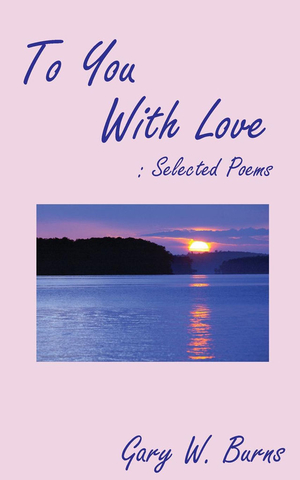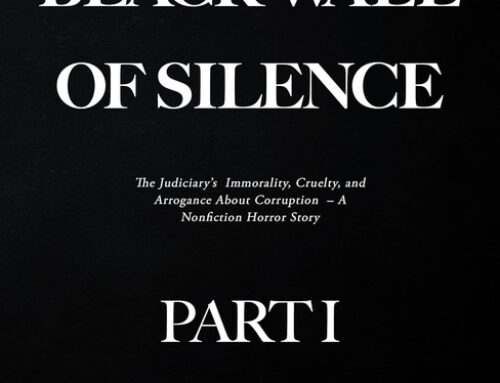
Loving relationships in a multitude of aspects and progressions form the focus of this new, emotive collection of works by poet Gary W. Burns.
The poems in To You with Love are divided into four segments: “Woven,” “Ins and Outs,” “Serenities,” and “Amore.”
“Woven” expresses the lover’s longing for as-yet-unrealized interconnectedness with his beloved. He imagines “The fabric of me, you: Tapestry.” The poet invites his cherished friend to share in experiences of summer’s natural bounty, recalling the tulips that grew in his youth (“The Songsmith”), picking “The First Marigold,” and often comparing his feelings to light and the warmth of the sun. In “Each Day Dear” the sun’s rays disappear and so does his sweetheart, leaving him in gray clouds. But he takes hope in the notion that “Sunrays, like days, have ways of coming back.”
“Ins and Outs” hints at change on the way. “Cold will make its way through summers house” in the opener, “Our Cares.” He asks his beloved to “leave the rain to its falling” and “come to me” (“The Alps and Midnight”) and extols the attraction of the “dark canopy of night” evoking a kind of dance of love (“Wellspring”). He reminds us that after storms come rainbows. Even when it was dark and he stumbled, Burns says, “I didn’t fall to pieces” (“Understanding”).
The third segment, “Serenity,” brings a calming acceptance: in “Goodnight,” Burns gently advises, “Relax – ease into the darkness.” In this portion he builds portraits of the light of stars and moon that illuminate the blackness of night. He holds out a glimmer of eternity in “Translucent Butterfly” by matching that fleeting image with these words: “The end of time is the beginning of Forever…”
Finally reaching the security of togetherness, the poet basks in “Amore,” in which each poem speaks of a sense of newly personalized communication between two people who have found each other at last. Despite all of the vagaries of the changing seasons, “No flower weathers this weather as the flower Love” (Standing Silhouette”). These last poems have a more personal intimacy, as when Burns describes “Touching”: “Yes, there’s sensation, but more here, there’s something ever dear.” He urges his cherished one to come in “Out of the Rain” – “into the arms of love.”
As in so many of Burn’s previous poetic works (Bridges: To There, Clouds: On the Wind, Garden Walks: Hand in Hand, Rainy Day: Wondering) these carefully chosen selections mix images of natural surroundings with ideals of human feelings and thoughts. Burns, who has been writing poetry since his youth, creates visual flashes – of a harvest moon, the leaves of autumn, the early morning light – that are tied to the fleeting, freeing and ultimately enduring qualities of real love. The wording is simple, the free verse style offering at times an echo of mystery, and of a spiritual linkage between the natural world and the realm of the heart.
Both romantic and plaintive, Burns conveys a breadth of emotion with relatively few words. At times veering towards the sentimental, Burns transcends this criticism, as the poems act as a kind of ode to sentiment – the writing may be sentimental, but sentimentality is a key component of mutual devotion. As such, the effect is both calming and inspiring.
Those already acquainted with the life force hovering in his words will be further fed by To You with Love, and the collection is a good place to start for new readers.
Book Links
STAR RATING
Design
Content
Editing
Get an Editorial Review | Get Amazon Sales & Reviews | Get Edited | Publish Your Book | Enter the SPR Book Awards | Other Marketing Services























Leave A Comment